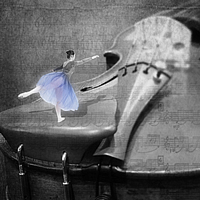Labor negotiations are often about value and power. To gain advantage and extract compensation, the worker side of the table needs to prove their value to the outcomes of the enterprise, and show their power to disrupt that outcome if that value isn’t recognized (we contribute value to the product or service you sell, we cannot be replaced, we want a larger share of the pie). It doesn’t always have to work this way, but it often does — especially when resources are tight and there are many contributors to value.
Sometimes, those claims of specific value become claims of relative value, as they have in the dancer negotiations with the San Francisco Ballet. In these cases, one group of workers claims greater value than another group of workers who already appear to be well paid. Listen closely to the comments of the dancer’s union president (okay, you don’t have to listen too closely), to see if you can find this approach:
”We don’t care what you did for the orchestra. The orchestra’s irrelevant; they could be replaced tomorrow by a computer or a record. We’re entitled to more because we are the product.”
So said Alan Gordon, national executive director of the American Guild of Musical Artists, in response to organizational efforts toward more equity between orchestra musicians and dancers. And while he also claimed that the position wasn’t about money but respect, it seems likely he’d like that respect expressed through money.
Unfortunately, claiming absolute or relative value is only half of the game in a contentious negotiation. The other half is proving your power. And alienating a likely advocate for your cause (and an advocate with more proven negotiation power than you), may not be the best way to go.



Look at http://en.wikipedia.org/wiki/1942–44_musicians%27_strike
Seventy years ago, union boss Petrillo insisted that musicians be present with their instruments, but completely idle, whenever recorded music was played on public radio stations.
This could have been stated in a more nuanced, respectful way as opposed to the ham-fisted approach that was used.
I believe it’s about dignity. Both parties were party to whatever agreements got the organization to this point, so to blame the ‘other’ while ignoring one’s own complicity is to diminish their dignity. Once that’s happened, it’s a rather predictable race to the bottom, and alas, one without any winners.